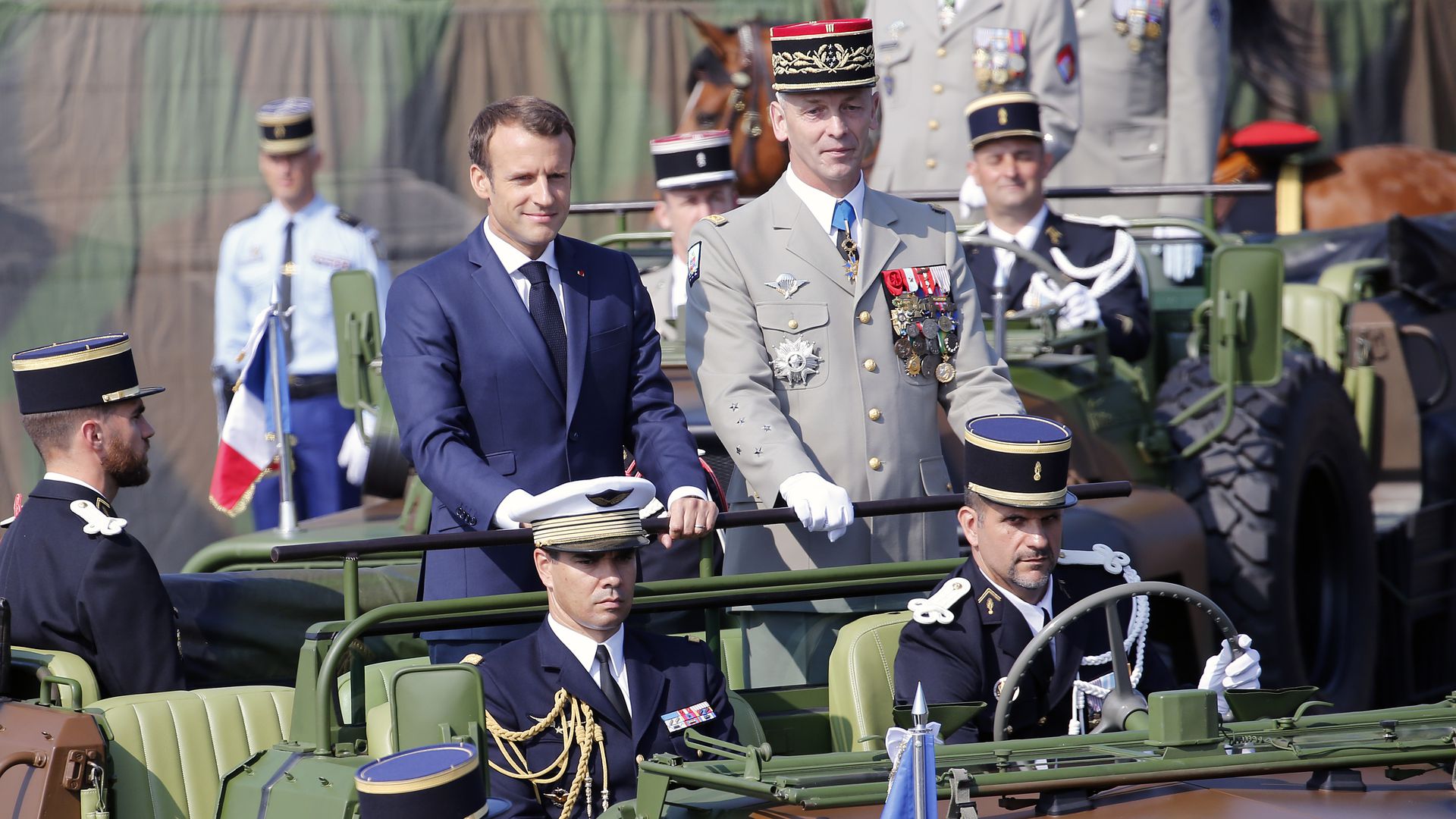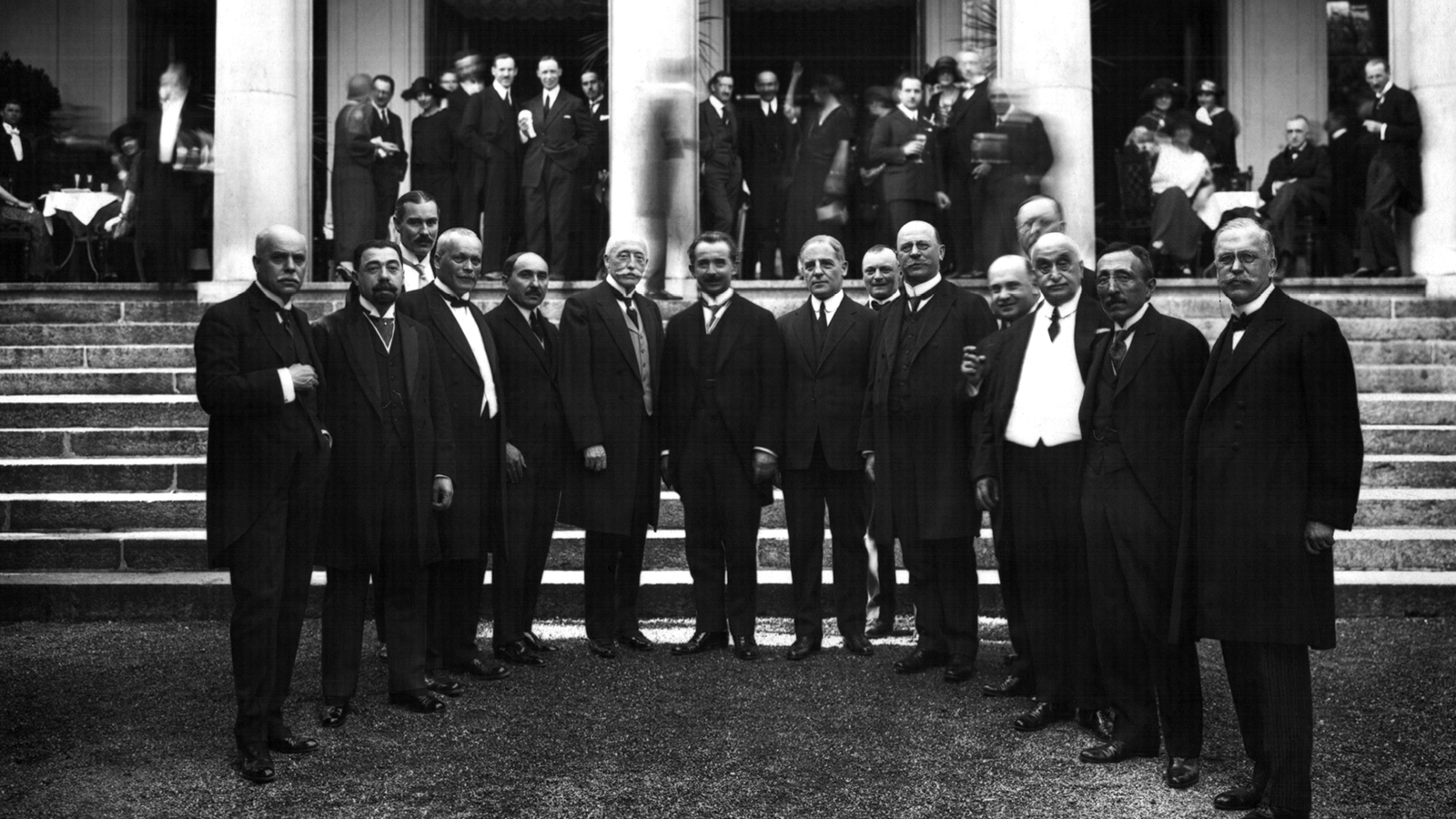While the foreign policy of a country is affected by its internal conditions, it is also determined by the external world’s requirements, the international system in which the country is located. The phenomena of globalization and interdependence that are becoming more evident today increase the importance of this issue. This phenomenon, which emerged within the understanding of power balance in ancient times, has gained a different appearance in the post-World War II period. During this period, technological developments, especially in communication and transportation, created a compulsory network of mutual relations in many areas of social life, and this situation was reinforced with the developing international economic division of labour. (Sönmezoğlu, 2014, p., 807). Thus, from the point of view, domestic politics has been externalized, and from a perspective, international politics has been internalized. In this framework, the interaction between the domestic political environments, socio-political structures, political regimes of the countries and the structure of the foreign political environment, namely the structure of the international political system, and its various features arising from this structure has increased considerably compared to the previous periods of history. (Sönmezoğlu, 2014, p.808)
If we consider the subject from this point of view, we can say that the principle of interdependence is also valid in domestic and foreign policy concepts. Accordingly, American Presidents, who set the promises they offer to their voters as targets, are relatively influenced by the public’s sociological and cultural structure that voted for them. Thus, it shapes its foreign policy tools depending on the political environment in the country.
Times of increased security concerns in international relations are also times when ethical standards in foreign policy decline. The reflection of this situation on American politics appears as the increasing security concerns unavoidably locking the gaze of the Democrats and subjecting them to Republican policies. An example of this is the support of essential Democrats such as Bill Clinton, Hillary Clinton, John Kerry, and even Richard Holbrooke, one of the Dayton Peace architects for the 2003 invasion of Iraq. This attitude of the democratic presidents brings to mind the following question: Can powers that have reached hegemonic power status also preserve their democratic structure and identity? (Sümer, 2008, p. 137) As seen in the Trump era, states such as China and Russia, which ideologically and strategically rival US hegemony globally, were seen by American decision-makers as a national security problem.
Wanting to maintain its global leadership role and unipolar world order, America has partially moved away from the values based on liberalism and soft power represented by the democratic party. As a matter of fact, in American political life, it has been Republican presidents who made the decisions that transformed international relations. As required by the realism and balance of power values they belong to, Republicans who want to develop the American influence on the world based on military and economic power have developed their policies within this conceptual framework. At this point, a critical point stands out. In essence, American politics consists of the sustainable continuation of liberalist and realist policies that support each other. Thus, American actions in the international arena are legitimized in the eyes of the world public opinion within the framework of ideals, and realist goals are successfully achieved without other states reaction. Incrementalism has a significant determinant in foreign policy formation in decision-making regarding American foreign policy. In this decision-making technique, decision makers control the situation by making small changes according to the developments. (Sümer, 2008, p. 135) However, Donald Trump, unlike other American presidents, almost completely rejected liberalist policies and made a very rapid and authoritarian transformation in American foreign policy. For this reason, the American people and the world public did not hesitate to express their reaction to this sudden policy change created by Trump during his tenure.
The values, which constitute an essential dimension of American Exceptionalism and are linked to America’s founding principles, also played a vital role in constructing a new international order after the Second World War and ultimately served as an essential source of influence outside the country for the USA. However, with Trump coming to power, these values started to suffer. As his actions accumulate, it becomes more difficult to oppose the determination that Trump represents a radical refusal to recognize, or even refuse, long-standing and even founding commitments. (Oğuz, 2019, p.117)
Older generations in the United States have a different view of the United States as the world’s number one loser, in coarse terms. What causes this view is the belief that the US leaves the burden and reaps others’ benefits. Therefore, it is said that it is time for the USA to end this situation. This is exactly what corresponds to Trump’s vision of “America First”. Expressing his belief that American citizens’ interests should always come first, Trump emphasizes that this priority has been neglected for a long time in American foreign trade and foreign policy. (Oğuz, 2019, p.117) As a result of this vision, Trump, who does not believe in the function of international organizations and wants to produce unilateral policies, has withdrawn from many international agreements, essentially leaving many international institutions that are under the influence of the USA or by proposing changes that increase American interests to member countries. made decisions. As an example of these decisions, the USA left the Trans-Pacific Partnership, a trade agreement with Asian countries. It then excluded the USA from international formations and agreements such as the United Nations Human Rights Council and the 2015 Paris Climate Agreement. (Deutsche Welle, 2021) Having made controversial decisions such as recognizing Jerusalem as the capital of Israel officially, continuing to provide military support to Saudi Arabia even after the assassination of Jamal Khashoggi, ignoring international balances and doing this without considering liberalist concepts as stated above. has led to the questioning of American authority and values around the world.
In addition to all this, Trump has seriously upended transatlantic relations. It has repeatedly questioned the value of alliances such as NATO. The USA decided to withdraw its troops from Germany. The US also imposed tariffs on the EU and threatened sanctions on those participating in the Nord Stream 2 project, transporting Russian gas to Europe. (Deutsche Welle, 2021) However, during his presidency, Trump aimed to preserve the USA’s power in the international arena with bilateral agreements directly implemented instead of suppressing states through international organizations and democratic values. To give an example about this subject, instead of mobilizing the World Trade Organization against China, Trump tried to punish it by unilaterally increasing customs duties on China’s exports. In the North Korean issue, he left aside the coordination policy with China and Russia and preferred to talk directly with Kim Jong Un.
Similarly, it used American sanctions directly instead of mobilizing the UN against Iran and forming a comprehensive sanctions coalition. The Trumpian foreign policy’s preference for unilateral policies has led to the weakening of the multinational liberal global system. The United States established its post-World War II institutions and directly financed them. (Üstün, 2019)
One of the fundamental values of the liberal international order established under the USA’s leadership after the Second World War is the freedom in trade and the removal of protectionist obstacles. Accordingly, the growth in international trade volume has always been praised by the USA as long as it is in favour of the trade balance. However, in the Trump era, a different period was experienced in the US trade policy. Setting off with a nationalist agenda in the economic field, the Trump administration has raised the walls of protectionism against China, which it sees as the most crucial competitor in commercial terms. (Oğuz, 2019, p.120)
We understand that in the 2020 elections, which followed Trump’s four-year term as president, the policies he produced due to his defeat by Democrat Joe Biden were not accepted in the eyes of the American public. For this reason, the new president Biden has begun to take the necessary steps to rapidly return America to liberal values, as he frequently stated in his election campaign. Refreshing America’s commitment to international alliances and supranational institutions is one of these steps. We can better understand the process of “returning to liberalism” by looking at the Biden administration’s actions during its appointment.
• President Joe Biden instructed the Pentagon to stop its plan to withdraw troops from Germany. (Ersöz, 2021)
• The USA will no longer support Saudi Arabia in the Yemen war that has been going on since 2014 and has been stated by the United Nations to cause the world’s biggest humanitarian crisis. (Ersöz, 2021)
•, Unlike the previous administration, the Biden administration is expected to follow a stricter policy on Russia within the framework of the NATO alliance.
• Rejoin the Paris Climate Agreement from which Trump was withdrawn and initiate the most extensive clean energy reform in the country’s history.
• He aims to return to the World Health Organization by revoking the presidential decree that Trump signed to quit with the claim that he supported China’s claims and remained ineffective during the coronavirus epidemic.
• The Biden administration aims to extend the duration of the New Strategic Weapons Reduction (New START) Agreement signed during the vice-presidency to prevent the new arms race and limit the use of nuclear weapons.
• Biden also aims to lift Trump’s bans on refugees and remove all practices associated with racism.
As it is known, the Democrats lead the liberalist policies in American foreign policy. Democrats have made the soft power factor effective in American foreign policy by emphasizing multilateralism, democracy and human rights in foreign policy. During the period of Obama’s term as Joe Biden vice president, despite all the harsh reactions from the public, he tried to turn the Iranian policy of the United States in a direction opposite to the Bush-era and the dialogue towards Iran. Policy (nuclear deal) has become one of the main actors. Therefore, it is not difficult to guess that Biden will want to sign a new nuclear agreement with Iran. (Hurmi, 2010, p.65)
Considering the years when the Democratic party was in power, democracy and human rights are not entirely applied for the USA. There is also a belief that democracies are more peaceful. However, the crucial criterion here is that these values should never conflict with US interests. (Sümer, 2008, p.138)
The Biden administration intends to maintain its US leadership in the international system against China. According to Biden, “The best Chinese strategy is one that brings all our allies – or at least the countries that were our former allies – on the same page”. In his article published in Foreign Affairs magazine, Biden wrote that the US should be tough against China; otherwise, China will continue to steal technology and intellectual property owned by the US and US companies. According to Biden, the US policy to prevent this is to create a united front with its allies and partners against China and China’s human rights violations, etc., to stand against their actions. (Demir, 2020, p. 240) Therefore, we will often come across realistic policies trying to create new power balances within the liberalist policies framework during Biden’s presidency. This means that the traditional perception of America in international relations will be re-emphasized over time.
Prepared by Buğra Çelikbilek for The FEAS Journal.
References
Ataman, M. (2006). Değerler ve Çıkarlar: ABD’nin Ortadoğu Politikasını Belirleyen Temel Unsurlar ve Ġlkeler. Ortadoğu Yıllığı, 413.
Demir, E. (2020). ABD’nin Biden dönemi Çin Politikası: Asya’ya Dönüş 2.0? Cappadocia Journal of Area Studies, 240.
Deutsche Welle. (2021, 03 14). DW: https://p.dw.com/p/3kc7z adresinden alındı
Hurmi, A. B. (2010). Bush Ve Obama Karşılaştırması Çerçevesinde Amerikan Dış Politika Analizi. Alternatif Politika, 65.
Oğuz, G. (2019). Amerikan Dış Politikasında Trump Dönemi ve Amerikan İstisnacılığı Anlatısının Sonu. Iğdır Üniversitesi Sosyal Bilimler Dergisi, 117.
Sönmezoğlu, F. (2014). Uluslararası Politika Ve Dış Politika Analizi. İstanbul: Der Kitabevi.
Sümer, G. (2008). Amerikan Dış Politikasının Kökenleri ve Amerikan Dış Politik Kültürü. Uluslararası İlişkiler, 137.
Üstün, K. (2019, Haziran 01). Amerikan Dış Politikası Nereye? Mart 14, 2021 tarihinde Kriter Dergi: https://kriterdergi.com/dis-politika/amerikan-dis-politikasi-nereye adresinden alındı












